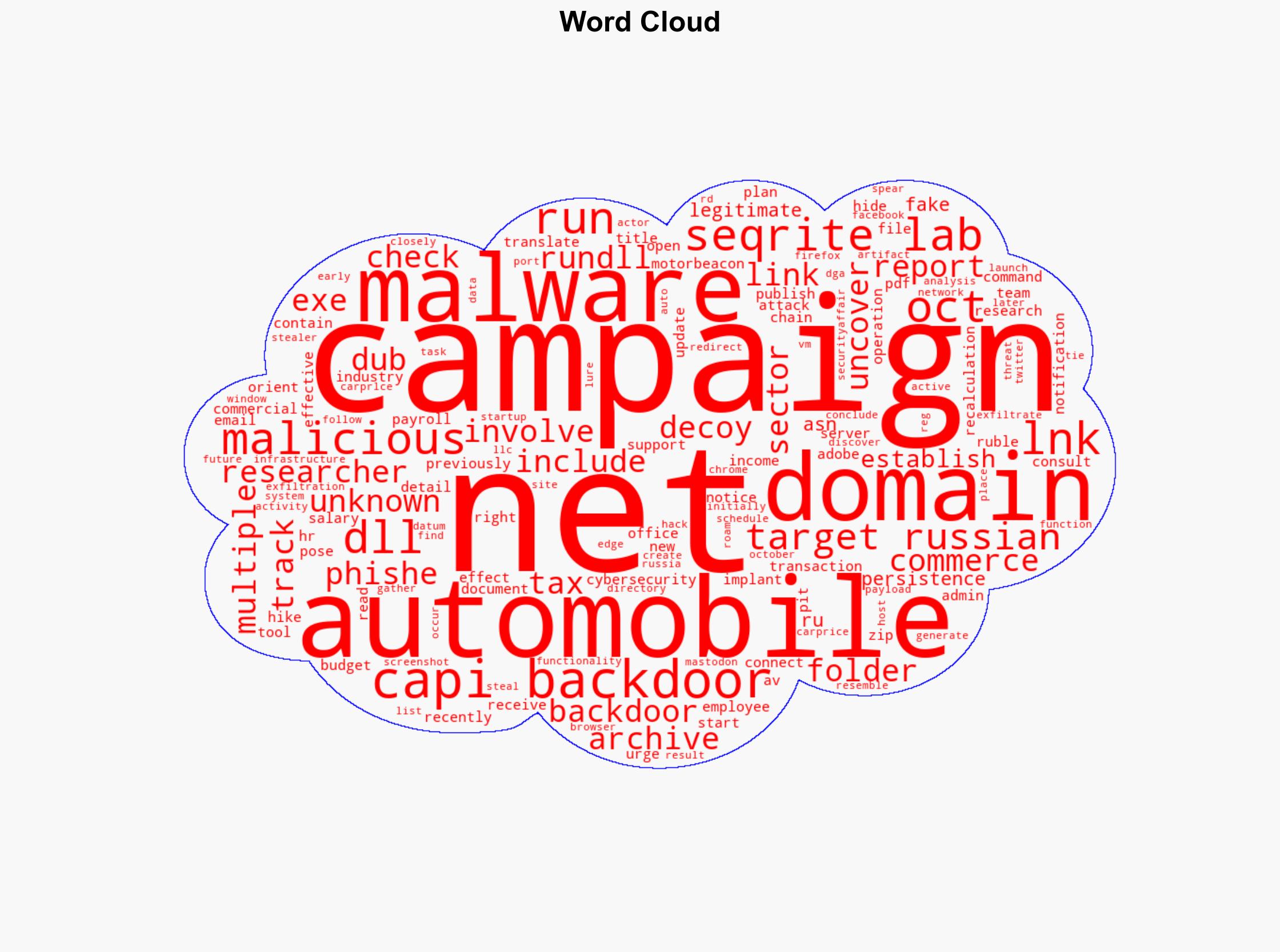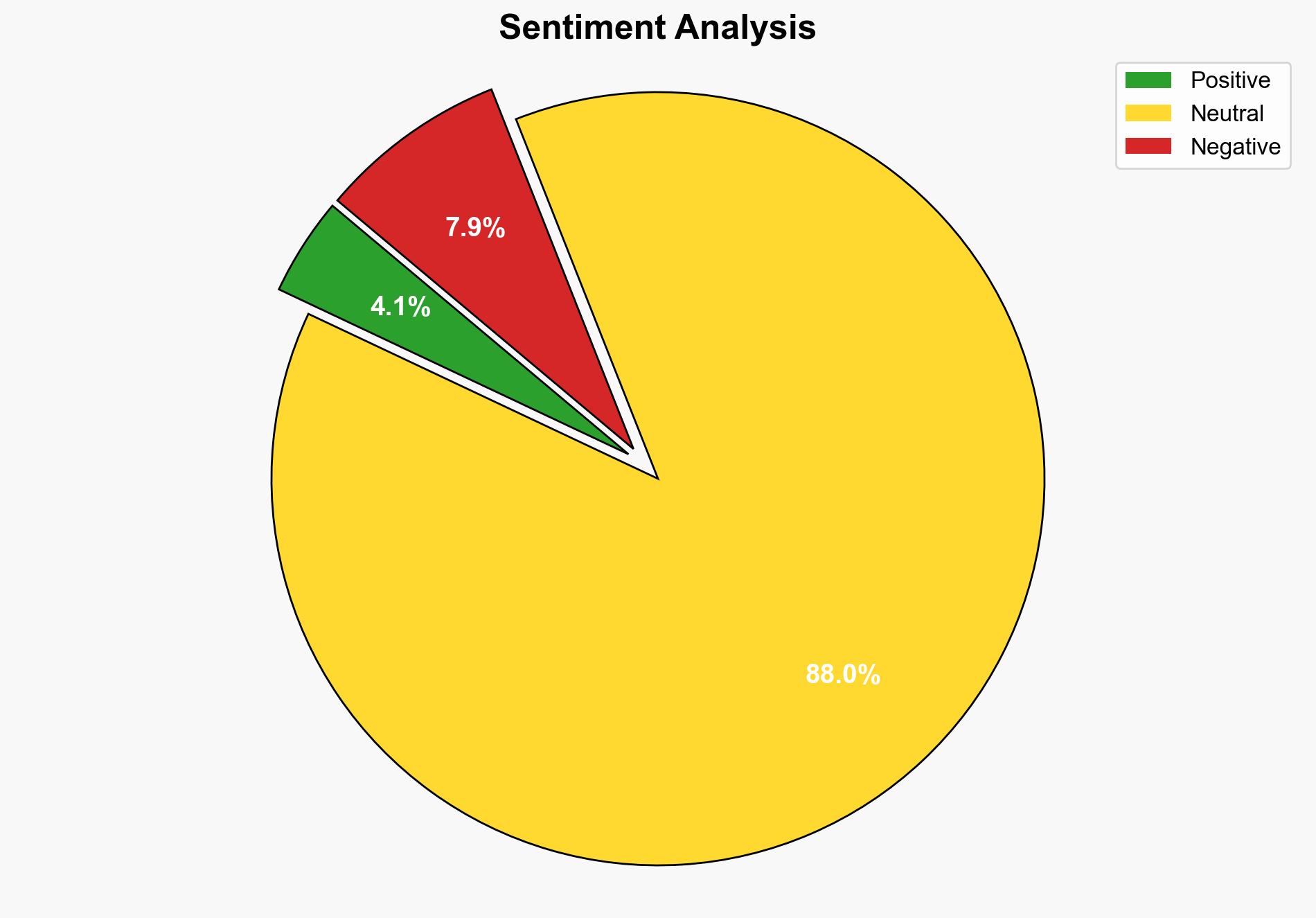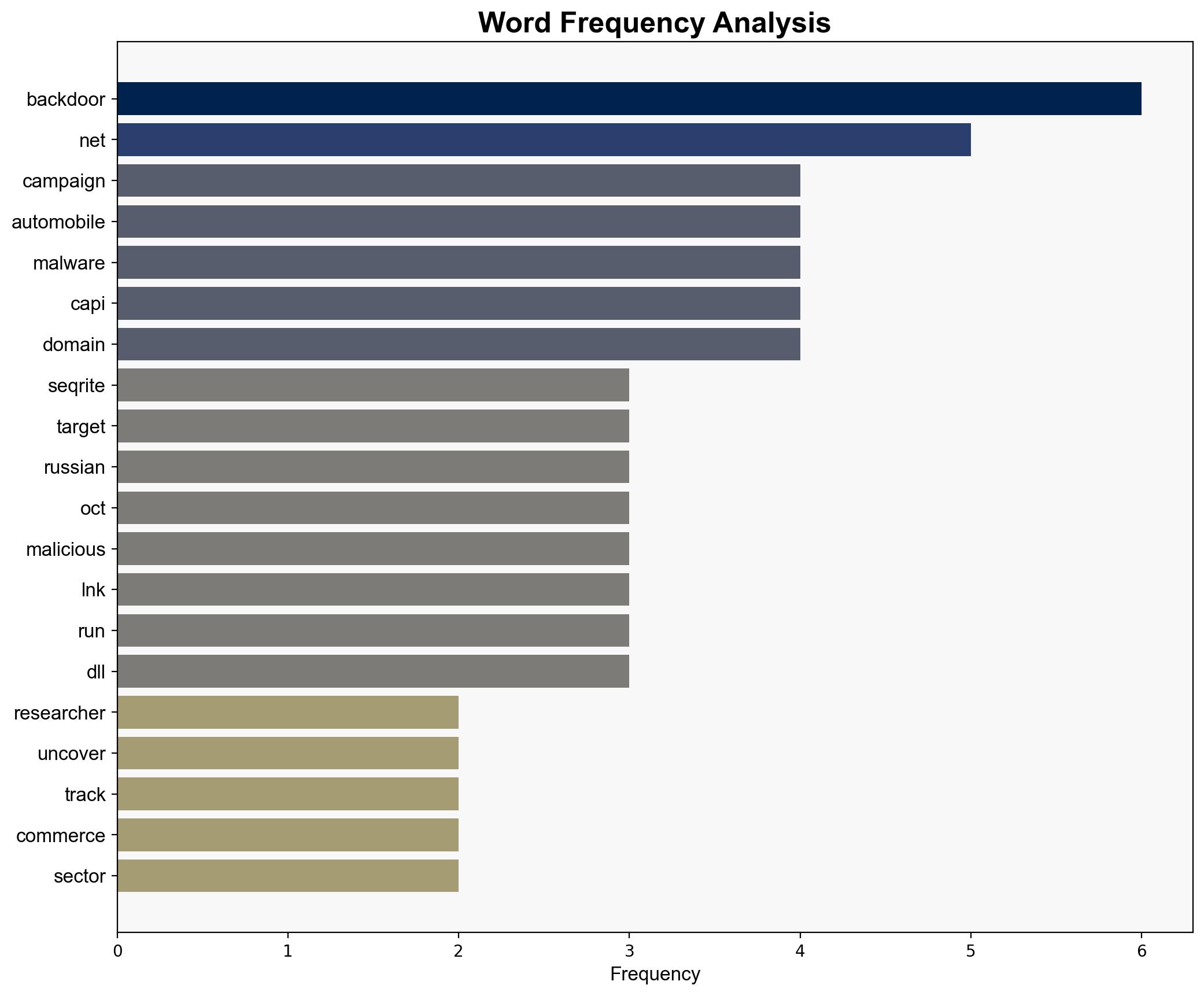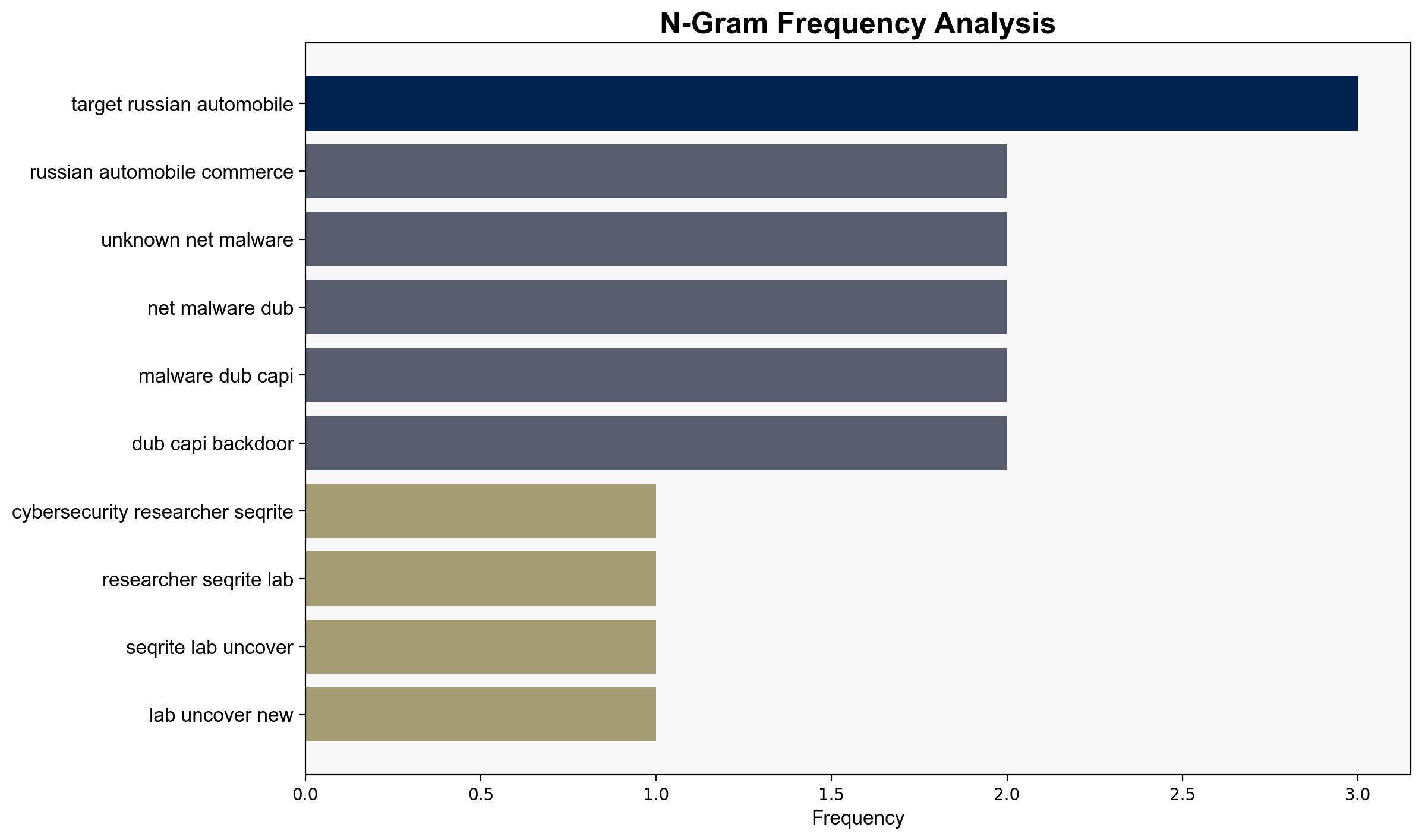CAPI Backdoor targets Russias auto and e-commerce sectors – Securityaffairs.com
Published on: 2025-10-20
Intelligence Report: CAPI Backdoor targets Russia’s auto and e-commerce sectors – Securityaffairs.com
1. BLUF (Bottom Line Up Front)
The CAPI Backdoor campaign targeting Russia’s automobile and e-commerce sectors is likely a state-sponsored cyber espionage operation aimed at economic disruption and intelligence gathering. The most supported hypothesis is that a nation-state actor is behind the attack, leveraging sophisticated malware to infiltrate and extract sensitive data. Confidence level: Moderate. Recommended action: Enhance cybersecurity measures and international cooperation to attribute and counter the threat.
2. Competing Hypotheses
Hypothesis 1: The CAPI Backdoor campaign is orchestrated by a nation-state actor with the intent to gather intelligence and disrupt Russia’s economic sectors, particularly focusing on the automobile and e-commerce industries.
Hypothesis 2: The campaign is the work of a financially motivated cybercriminal group aiming to steal sensitive data for resale on the black market or to conduct further financial fraud.
Using the Analysis of Competing Hypotheses (ACH) 2.0, Hypothesis 1 is better supported due to the sophistication of the malware, the strategic targeting of economic sectors, and the use of advanced techniques such as domain generation algorithms (DGA) and spear-phishing. These elements suggest capabilities and resources typically associated with state-sponsored actors.
3. Key Assumptions and Red Flags
– Assumption: The complexity and scale of the operation imply state sponsorship.
– Red Flag: Lack of direct attribution to a specific nation-state actor.
– Blind Spot: Potential underestimation of cybercriminal capabilities or collaboration with state actors.
– Cognitive Bias: Confirmation bias towards state-sponsored attribution due to geopolitical tensions.
4. Implications and Strategic Risks
The campaign poses significant risks to Russia’s economic stability and could lead to broader geopolitical tensions if attributed to a foreign state. The disruption of key sectors might result in economic losses and undermine public trust in digital infrastructure. Additionally, the campaign could set a precedent for similar attacks globally, escalating cyber warfare tactics.
5. Recommendations and Outlook
- Enhance cybersecurity protocols within targeted sectors, focusing on phishing awareness and malware detection.
- Foster international collaboration to trace and attribute the attack, potentially involving Interpol and cybersecurity alliances.
- Scenario Projections:
- Best Case: Successful attribution and neutralization of the threat, leading to strengthened cyber defenses.
- Worst Case: Escalation into a broader cyber conflict with retaliatory attacks.
- Most Likely: Continued low-level cyber espionage with periodic disruptions.
6. Key Individuals and Entities
No specific individuals are mentioned in the source intelligence. Entities involved include Seqrite Labs, the Russian automobile and e-commerce sectors, and potentially unidentified state or non-state actors.
7. Thematic Tags
national security threats, cybersecurity, economic espionage, geopolitical tensions




